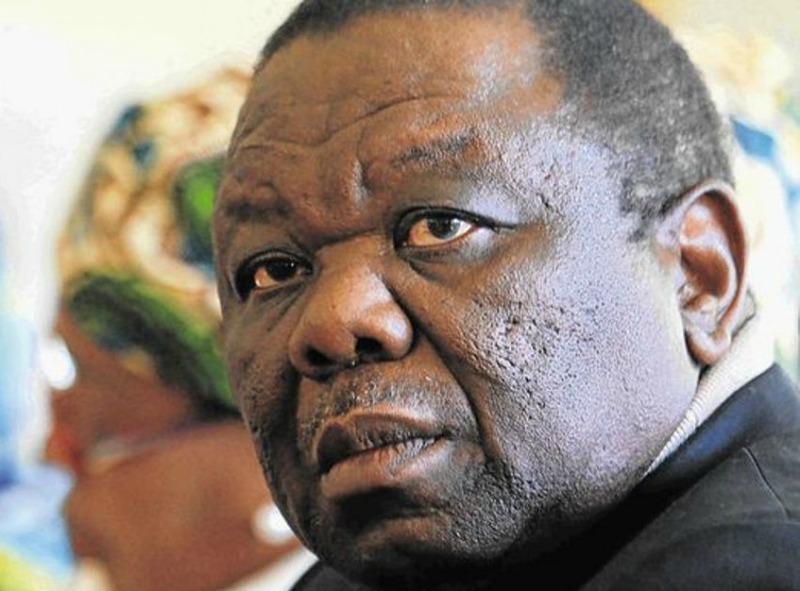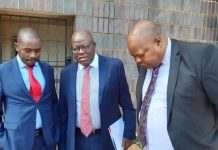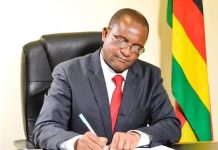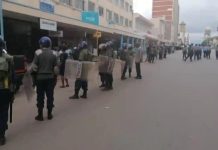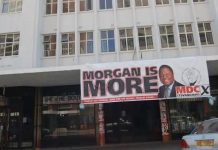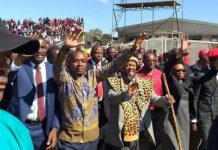THE MDC has been mired in an entanglement, recently described in the judgment by the Supreme Court as an imbroglio.
Accusations and counter accusations are being thrown around between factions and individuals within the MDC, at the judiciary and at the ruling party, Zanu PF.
What I have observed since the original party was formed is perpetual blame on Zanu PF for all the ineptitude within the MDC. Everything that goes wrong is blamed on Zanu PF, and its supporters are made to believe every grain of it.
While I have always known and predicated the influence or control of Zanu PF over the judiciary, and its manipulative deviltry, it is ironic and disingenuous for the MDC to always blame Zanu PF for its own ineptitude and charlatanism.
When Welshman Ncube split with Tsvangirai in 2005, and took away the MDC name and logo, supporters were told that Welshman was a CIO operative, who had been planted by Zanu PF to split the MDC.
Tendai Biti split with (or was expelled by) Tsvangirai in 2014, and he was again labelled a Zanu PF (CIO) agent. Yet today they are back in the leadership of the very party that accused them of being agents of Zanu PF.
After the harmonised elections in July 2018, MDC petitioned the Constitutional Court challenging Mnangagwa’s electoral win, and the country and MDC supporters were told that there was indisputable evidence which would prove that the elections had been rigged.
According to MDC Alliance and Chamisa’s counsel, Thabani Mpofu, before the hearing, there were thousands of copies of primary evidence (V11s). However, there was no such evidence submitted before the Constitutional Court (ConCourt), save for 3 V11s, yet the court was still expected to make a determination in their favour.
The court dismissed the petition, saying that the MDC and Chamisa had failed to submit primary evidence of vote rigging by the Zimbabwe Electoral Commission (Zec), and had also failed to demand a vote recount, or the reopening of the ballot boxes, as per electoral laws.
The ConCourt said the burden of proof was on the petitioners. Before the hearing, the MDC had confidence in the judiciary, and they boasted that they would definitely win the petition. But soon after the judgement, the song of a captured judiciary was played, and supporters religiously echoed.
In 2016, Patson Murimoga, and George Rice, members of the MDC launched a challenge in the High Court against the MDC and Morgan Tsvangirai, for appointing Nelson Chamisa and Elias Mudzuri as deputy presidents in violation of the MDC constitution.
Following the court challenge, Murimoga had to go into hiding from his home in Chitungwiza, after threats on his life and that of his family from MDC activists.
The High Court dismissed the challenge on a technicality, ruling that the petitioners had no locus standi. Because the High Court had ruled in Tsvangirai’s and MDC’s favour, there was no mention of the courts being captured.
In February 2018, Thokozani Khupe was recalled by the MDC from Parliament, where she represented Makokoba constituency. She took Parliament and the MDC to the Constitutional Court, challenging her recall. The ConCourt dismissed her challenge, on grounds of mootness as her parliamentary term had since expired the day before polling day.
After this judgment, no one in the MDC accused the judiciary of being biased or captured by Zanu PF because the judgment was in their favour.
In February 2020, Job Sikhala was acquitted by a Masvingo court and there was jubilation in the MDC, citing the impartiality of the courts. Had he been convicted, one would bet, the court would have been accused of being captured by Zanu PF.
Fast forward to the recent Supreme Court judgment, the court dismissed the appeal by Chamisa and upheld an earlier judgment of the High Court, nullifying Chamisa’s as- cendency to power as unconstitutional. Immediately, social media was awash with comments accusing the judiciary of being captured by Zanu PF, and this time the party chairperson, Morgen Komichi and Douglas Mwonzora became part of the Zanu PF machinery sent to undermine
Chamisa and the MDC.
Because they accepted the judgment of the Supreme Court, they became CIOs in their speeches post judgment.
Ironically, none of the MDC-A leaders, most of them, seasoned lawyers, interrogated the legal arguments in the judgment. Flimsy and flawed analyses were proffered, which were clearly devoid of legal illation and were more of political analyses than legal.
The MDC is led by more than five prominent lawyers, one of them a professor of law, yet it has perennially botched up, both administratively and legally. They knew very well that Chamisa violated the constitution when he usurped power in the MDC after Tsvangirai’s death, but they turned a blind eye, instead of advising him to do the right thing and follow the party constitution and democratic processes. They knew what the outcome of the Supreme Court appeal would be, because they knew that their submission before the court was flawed.

